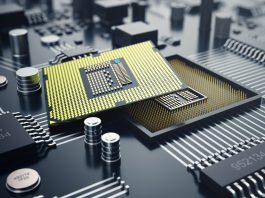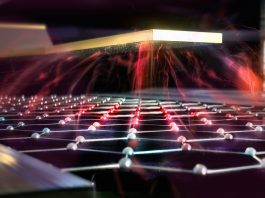Scientists have developed a highly efficient computing method that combines the power of a quantum computer with the reliability of a conventional desktop PC.
Established by researchers from the Institute for Quantum Computing (IQC) and the University of Innsbruck, the novel computing method paves the way for experiments and algorithms that can potentially achieve near-term applications and innovations of quantum computer technology.
Christine Muschik, a principal investigator at the Institute for Quantum Computing (IQC) and a faculty member in physics and astronomy at the University of Waterloo, said: “In the future, quantum computers could be used in a wide variety of applications, including helping to remove carbon dioxide from the atmosphere, developing artificial limbs, and designing more efficient pharmaceuticals.”
The new method follows a measurement-based approach in a feedback loop with a traditional computer, creating a technique that can efficiently tackle complex computer problems; furthermore, as the system is resource-efficient, it can employ small quantum states that are custom-tailored to solve unique problems.
This process is called Hybrid computing – where a quantum computer processor and a standard computer processor are amalgamated into a feedback loop, which enables researchers to have a stronger and more flexible approach than just primarily using a quantum computer.
Although work is currently underway to manufacture a quantum gate-based hybrid computer, the team strived to achieve quantum computations without their necessity; instead, they designed an algorithm in which a hybrid quantum-classical computation is achieved by performing a sequence of measurements on an entangled quantum state.
This groundbreaking innovation is incredibly exciting for experimentalists and quantum software developers, as it delivers a fresh perspective of optimisation algorithms, providing high error tolerance – usually a significant issue in quantum systems. The new method is applicable to a vast array of quantum systems, such as photonic quantum computer processors.
By eliminating the dependence on quantum gates, the researchers have bypassed a notoriously problematic stage of hybrid computer production; they are confident that their alternative approach of utilising entangled quantum states will enable them to create feedback loops specially tailored to the datasets that the computers are efficiently researching.
“Quantum computers have the potential to solve problems that supercomputers can’t, but they are still experimental and fragile,” commented Muschik.









